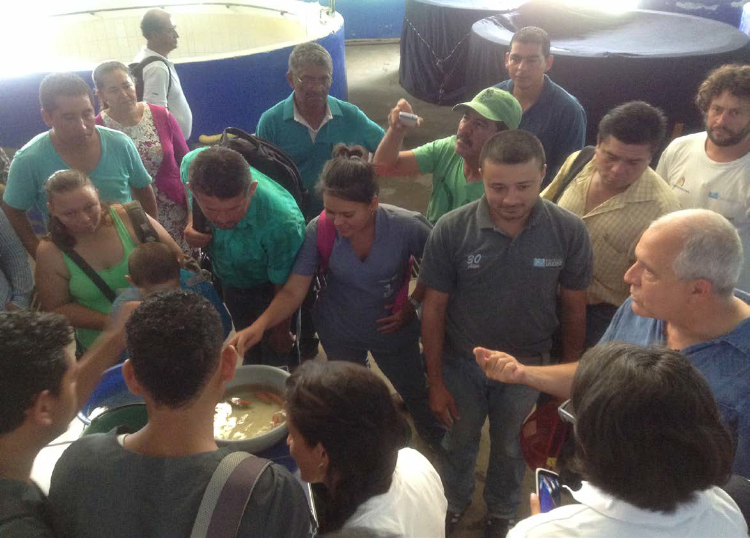Water — The Main Ingredient
At various points in my career, I have heard the argument that freshwater aquaculture makes more sen...

In aquaculture, and agricultural production in general, knowledge is indeed power. As aquaculture continues to advance throughout the world, a constant question is how best to get knowledge to those producers, students and policy makers who most need it? As Francis de Heer suggests in this issues’s African Chapter contributed article, throughout Africa “the most important component that will make a significant impact at this stage is the provision of skills and information.” He also points out that, in his case, “sending trainers across Ghana to speak to farmers is certainly a logistical nightmare.” Clearly, the same is true in many, many other countries, and not just in Africa. WAS’ website outlines the following Mission Priorities:
We seasoned veteran stakeholders often think of Extension professionals as the front line in the effort to disseminate information. But the tools have changed.
The concept of Extension education can be traced back almost 4,000 years, when governments in several early cultures encouraged best practices to boost crop yields (so as to collect more tax revenues — what a surprise). Modern approaches to Extension education began in England in the 1850’s and 1860’s. These initiatives eventually came to focus on agricultural education, and became the inspiration for similar efforts in the U.S. and elsewhere. In many countries, both developed and developing, aquaculture producers who do not have direct access to Extension professionals with the appropriate expertise are increasingly seeking information from other sources. This, of course, can be a double-edged sword.
Another phenomenon has begun to undercut the value of the traditional Extension model: the privatization of research. Many large companies have reached a point where a significant portion of their research needs can, or must, be addressed in-house. And, many of the smaller aquaculture operations currently in business throughout the world have no nearby university or government professionals to collaborate with. As a result, these businesses have also chosen to embark on in-house R&D, albeit often on a trial-and-error basis with limited resources. In the age of the internet, and in spite of the decline of the role of Extension, tools still exist for valuable and verifiable information to reach industry stakeholders digitally and objectively. We will need more effort to connect the dots and translate results for practical applications. Successful approaches will require the following components:
The tools required to reach industry stakeholders digitally and objectively already exist. We need to find efficient and inclusive ways to advance these efforts. World Aquaculture Magazine is only one piece of the puzzle, and we look forward to your contribution.
— C. Greg Lutz, Editor-in-Chief